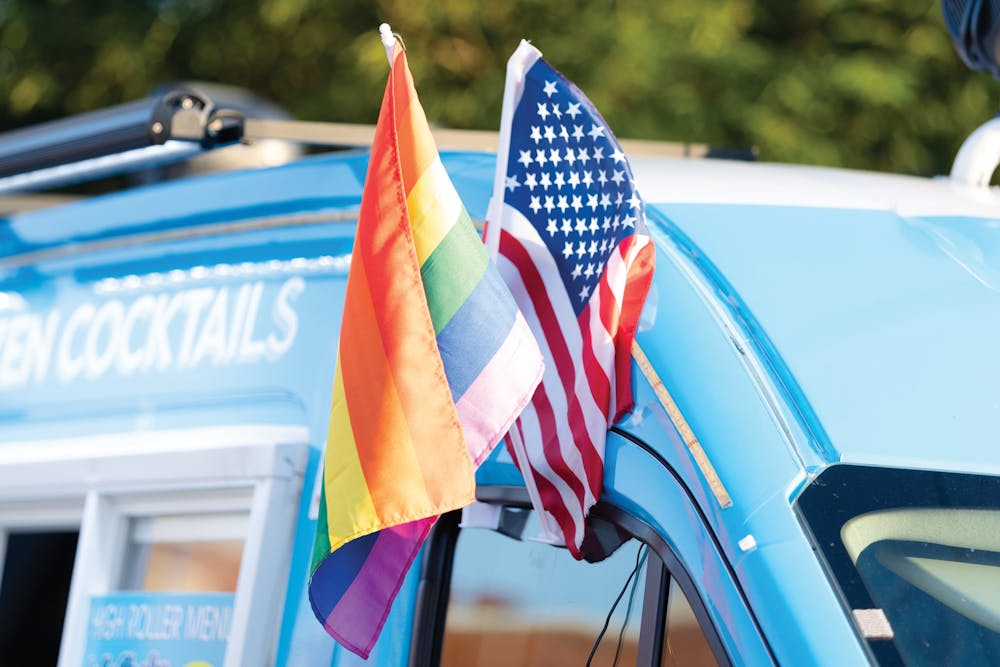South Carolina has come a long way in terms of being more politically accepting of the LGBTQIA+ community. Nekki Shutt, an attorney who helped legalize same-sex marriage in the state, said she remembers worrying about her safety at a pride march in the 1980s.
"I think we've made great strides," Shutt said. "I did the press packets for the first Pride March. That we did. And it was a scary time to be out in South Carolina."
While much progress has been made, the battle is still being fought. This summer's Supreme Court decision to overturn Roe v. Wade has some legal professionals questioning if the Supreme Court will try to overturn Obergefell v. Hodges, the landmark Supreme Court case that legalized same-sex marriage on a federal level.
“If Roe v. Wade can fall, then Obergefell can fall, and I’m so afraid of that. The U.S. Supreme Court has taken a 180-degree turn — it’s all political,” Malissa Burnett, a partner at Burnette, Shutt and McDaniel law firm said.

While these national protections from Roe and Obergefell are being challenged, the Supreme Court case ruling of Bostock v. Clayton County offers some immunity.
Bostock v. Clayton County was a court decision in 2020 that interpreted the word sex to include sexual orientation and gender identities to add protections against discrimination in Title VII of the Civil Rights Act, Shutt said.
Although the Bostock decision protected the LGBTQIA+ community and their experience in the workplace, there were also laws in place that negatively affected the private lives of these individuals.
Sodomy laws in South Carolina were some of the most severe in the nation, according to Ed Madden, professor of English and women’s and gender studies. The laws were specifically called "buggery", which was applied to both straight and homosexual couples, but had specific targets to the LGBTQIA+ community as it applied to oral and anal sex.
“(South Carolina) was the last state in the nation to remove the death penalty for sodomy. That was in 1869. We then revised our sodomy laws, so that it was a sentence of what was this five years or $500,” Madden said. “So other states have had the judge could offer leniency. If you were convicted here, there was no leniency.”
South Carolina has progressed in some aspects such as the removal of the bathroom bill. Bathroom bills are legislation that prohibits transgender individuals from using the bathroom that aligns with their gender identity. South Carolina was able to strike down its bathroom bill after seeing a lot of businesses pulling out of economic affairs in North Carolina, according to Shutt.
This year, South Carolina Gov. Henry McMaster signed a bill that excludes transgender youth from sports.
“They have stigmatized an entire group of people — an entire group of children, who are sometimes already struggling — and there’s no reason to have done this other than to stigmatize trans people in general,” Madden said.
At USC, the athletic department focuses on inclusion, particularly with transgender individuals.
“I would applaud our athletics department because they are advocates,” Julian Williams, vice president of Diversity, Equity and Inclusion, said. “That makes me proud as a university employee, that our department that our athletics department is taking those proactive steps, because we know that athletics brings people together in so many ways.”
The university has also been fighting for the equality of the LGBTQIA+ community but acknowledges that more work is to be done on its end to keep uplifting this group.
“I think that the issues that we're seeing around the LGBTQ+ community really mirror a lot of the larger social issues that South Carolina has struggled with,” Williams said.
While progress regarding protections for the LGBTQIA+ community has not always been linear in South Carolina, the community continued to fight until their rights were guaranteed.
“I’ve always said that you can’t count on your rights, you have to defend them continuously,” Burnette said.

